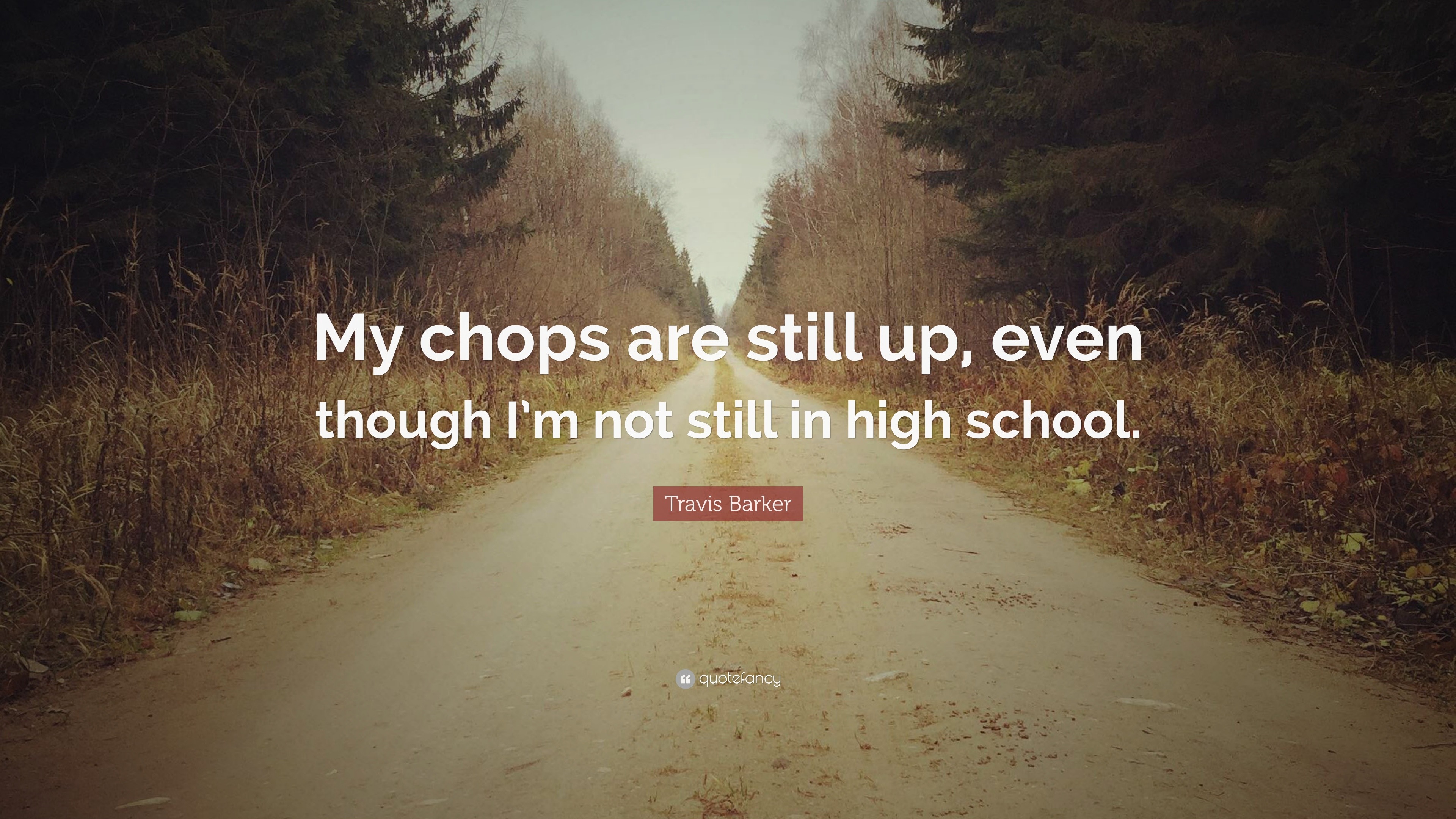No products in the cart.
Music
The Profound Wisdom of Travis Barker A Journey Through His Quotes
In the realm of modern music, few names resonate as powerfully as Travis Barker. Known for his innovative drumming style and dynamic stage presence, he has not only redefined the role of a drummer but also emerged as a voice of inspiration for many aspiring musicians. Beyond the rhythms and beats, Barker’s words encapsulate his journey, philosophy, and relentless passion for life and art. This article will explore the rich tapestry of Travis Barker quotes, delving into their meaning and significance, while offering a glimpse into the mind of a musical icon who is as complex as he is talented.
The Love-Hate Relationship with Touring

Touring is an integral part of a musician’s life, often filled with excitement, adrenaline, and a sense of purpose. However, it can also be a source of immense challenge and sacrifice. Travis Barker’s candid reflection on touring captures this duality beautifully: “I love tour, but I don’t like traveling at night or driving long hours. But I love touring. If my kids could be out there full time, I’d probably never go home.” This sentiment mirrors the struggles faced by artists who crave connection with their audience while grappling with the physical toll that constant travel demands.
The Joy of Performance
The thrill of live performance is something that resonates deeply with Barker. For him, being on stage is not just about playing music; it’s about creating an experience. The energy exchanged between the artist and the audience during a live concert can be exhilarating, inspiring performers to push their limits. When Barker mentions his love for touring, he embraces the idea that performing live is a powerful form of expression, allowing him to share his heart and soul with fans in a way that recorded music cannot replicate.
Moreover, the joy of touring extends beyond personal gratification; it’s a celebration of community. Concerts foster connections—fans come together, united by a shared love for the music. For Barker, those moments can feel akin to family gatherings, where everyone shares laughter, tears, and memories. This collective experience creates a deep bond between the artist and the audience, solidifying the importance of live performances in an artist’s journey.
The Harsh Realities of Life on the Road
Yet, even amidst the excitement, there are challenges that Barker acknowledges. The grueling schedule, late-night drives, and unfamiliar hotel rooms can take a toll on one’s mental and physical well-being. Despite the glamorous facade of rock stardom, the reality of life on the road can sometimes lead to feelings of isolation and exhaustion. Barker’s quote highlights the tension between the joys of performance and the sacrifices that come with it.
Traveling away from family can amplify these challenges, leaving artists yearning for the comforts of home. For Barker, the thought of having his children with him while touring reflects a desire to balance work with family life. This longing presents a relatable aspect of the artist experience—many creatives grapple with the struggle of choosing between their passions and their loved ones.
Finding Balance
In light of Barker’s reflections, it becomes clear that navigating the complexities of a musical career requires skillful balancing. Artists must learn to manage their desires for success and recognition while nurturing relationships that matter most. Achieving this balance may involve difficult choices, leading to questions about what one is willing to sacrifice for their art. The dichotomy of touring embodies the universal struggle of pursuing dreams while maintaining personal connections. Barker’s insights encourage other artists to consider what they truly value and how they can integrate those values into their careers.
Exploring Balance in Passion

Barker’s assertion about the necessity of balance—between personal life and professional obligations—opens up a broader conversation about the intertwined nature of artistry and everyday life. This balance is crucial not only for personal fulfillment but also for overall well-being. He likens this juggling act to a performer managing multiple balls in the air, illustrating that excessive focus on one aspect can lead to neglecting another.
The Grounding Force of Family
For many artists, family serves as a grounding force amid the whirlwind of fame and creativity. In Barker’s case, his desire to have his children accompany him on tour speaks volumes about his commitment to nurturing those familial bonds. The pursuit of artistic excellence often comes with the risk of losing touch with what truly matters. By prioritizing family, Barker emphasizes that artists should strive to cultivate a supportive environment where both their craft and personal lives can thrive together.
The importance of family ties is further underscored by the emotional support artists receive from their loved ones. During moments of doubt, burnout, or creative blocks, the presence of family can provide encouragement and perspective. Moreover, being rooted in these relationships allows artists to draw inspiration and authenticity from their experiences, ultimately enriching their work.
Balancing Passion and Professionalism
Striking a balance between passion and professionalism is another challenge that artists face. While the love for one’s craft is paramount, it can easily become overwhelming without proper management. Barker demonstrates discipline through his rigorous practice schedule. He once mentioned, “I practice every day, I warm up before I play,” showcasing that dedication to one’s skills is essential for sustaining a successful career.
This disciplined approach not only enhances performance capabilities but also fosters self-confidence. By committing to honing his craft daily, Barker exemplifies that passion must be paired with consistent effort to achieve mastery. It serves as a reminder to aspiring artists that success does not happen overnight; rather, it is forged through unwavering perseverance and hard work.
Creating a Harmonious Environment
Ultimately, achieving balance in both personal and professional realms encourages artists to create a harmonious environment that nurtures creativity. This entails setting boundaries, scheduling quality time with family, and allowing space for relaxation and self-care. As Travis Barker illustrates through his own experiences, recognizing the significance of family while pursuing one’s passions can lead to a fulfilling and sustainable career in the arts.
Mediocrity vs. Excellence

A profound insight from Travis Barker reveals his stance on the pursuit of excellence: “For anybody who loves what they do, mediocrity is not enough. You don’t have to be the best in the world, but you should be the best that you can be.” This statement encapsulates a fundamental truth about artistry—the journey towards greatness is paved with efforts to grow, evolve, and continually improve.
The Drive for Personal Growth
Barker’s emphasis on striving for excellence speaks volumes about his intrinsic motivation. Many artists begin their journeys fueled by passion, but the willingness to push beyond comfort zones defines those who leave a lasting impact. By rejecting mediocrity, Barker invites others to embrace a mindset centered around personal growth. The process of becoming the best version of oneself involves exploring new techniques, challenging current skills, and embracing vulnerability.
This drive for improvement transcends the world of music. In various fields—be it sports, academics, or entrepreneurship—individuals who seek excellence demonstrate resilience, determination, and a willingness to learn from failures. Barker’s insight encourages all of us to reflect on our definitions of success and to recognize that striving for one’s personal best is a worthy pursuit.
Redefining Success
In a culture that often conflates success with fame and recognition, Barker’s perspective acts as a refreshing reminder that true fulfillment stems from within. The pressure to compare oneself with others can be debilitating; however, when individuals shift their focus to personal growth, the weight of external expectations diminishes. Each person has a unique journey with distinct goals and aspirations. Thus, the pursuit of excellence is not a competition, but rather a personal commitment to continuous improvement.
By fostering an attitude of self-compassion and celebrating progress, individuals can redefine their relationship with success. Instead of becoming paralyzed by comparisons, one can appreciate their achievements and recognize their potential for future growth.
The Joy of the Journey
It is essential to acknowledge that the journey toward excellence is often fraught with challenges. Embracing failures, setbacks, and obstacles as opportunities for learning is a key aspect of this process. Barker’s insights inspire us to adopt a mindset that values effort over outcome, encouraging individuals to enjoy the journey itself.
This perspective resonates particularly in the creative realm, where the exploration of ideas, experimentation, and innovation are celebrated. By focusing on the art of creation rather than the end result, artists can find joy, freedom, and satisfaction in their work, paving the way for transformative experiences that extend far beyond the final product.
Music as Therapy

Another poignant remark from Barker states, “Playing my drums is therapy.” This simple yet profound statement unveils the healing power of music and sheds light on its role as a refuge for many. To Barker, drumming is more than a profession—it is an outlet for emotional expression and healing.
The Therapeutic Nature of Music
Music has long been recognized for its therapeutic benefits. Research confirms that engaging with music can reduce anxiety, enhance mood, and promote relaxation. For Travis Barker, the act of playing the drums serves as a form of catharsis—a way to channel emotions, relieve stress, and navigate the complexities of life. In moments of turmoil, music can offer solace and a means to process feelings that may be difficult to articulate otherwise.
The rhythmic beats of the drums provide a physical release, allowing one to immerse themselves fully in the experience. Much like how meditation provides clarity of mind and peace, drumming offers a meditative quality that transforms chaos into rhythm. For Barker and countless others, music functions as a sanctuary—a safe space where creativity flourishes, and healing occurs.
Music as a Coping Mechanism
In times of difficulty, music often becomes an essential coping mechanism. Whether facing personal struggles, loss, or mental health challenges, the act of creating or listening to music can provide comfort and connection. Barker’s insight encourages us to recognize the significance of music not only as entertainment but as a tool for emotional processing.
In this fast-paced world, taking the time to engage with music can facilitate introspection. Individuals can use music to reflect on their experiences, confront their thoughts and feelings, and ultimately gain a sense of empowerment. By tapping into the therapeutic nature of music, people can foster resilience and find strength in adversity.
Engaging with Art for Healing
Beyond drumming, the broader realm of artistic expression—whether through painting, writing, or dance—can serve as a powerful form of therapy. Engaging with art allows individuals to explore their innermost thoughts and emotions, facilitating healing through creativity. Just as Travis Barker illustrates the therapeutic effect of drumming, artists worldwide can find solace in their chosen mediums.
This notion invites us to consider how we engage with art in our lives. Are we using creative outlets as tools for self-discovery? Are we allowing ourselves the time and space to explore our feelings through artistic expression? Embracing the healing power of art can serve as a catalyst for personal growth, transformation, and ultimately, a deeper understanding of ourselves.
Commitment to Craftsmanship

A critical element of Travis Barker’s success lies in his unwavering commitment to craftsmanship. He states, “I practice every day, I warm up before I play.” This dedication to honing his skills underscores the belief that raw talent alone is insufficient for achieving mastery. Rather, it requires consistent effort, discipline, and a willingness to learn.
The Path to Mastery
Mastery in any field necessitates time and devotion. Just as athletes diligently train to refine their abilities, musicians must cultivate their skills through persistent practice. Barker’s discipline illustrates that greatness is not inherent; it is cultivated through years of hard work and dedication. This understanding serves as an important lesson for aspiring artists—success does not come from mere chance but rather from commitment and determination.
Moreover, the journey to mastery is not linear. It involves periods of stagnation, frustration, and self-doubt. However, by remaining steadfast in their pursuit, artists can gradually overcome obstacles and unlock their full potential. Barker’s example encourages individuals to embrace the process of learning, evolving, and growing, recognizing that each step contributes to the larger narrative of their artistic journey.
The Importance of Preparation
Preparation plays a significant role in ensuring peak performance. For Barker, warming up before performances not only enhances his ability to play but also sets a positive tone for the entire experience. Rituals such as warm-ups establish a mental and physical state conducive to creativity and focus. By prioritizing preparation, artists can build confidence and alleviate anxiety, enabling them to perform at their best.
Additionally, cultivating a routine fosters creativity and discipline. Having a dedicated time for practice allows artists to explore their craft freely, experiment with ideas, and discover new avenues of expression. With time, these regular practices become second nature, leading to improved skills and heightened artistic expression.
The Ripple Effect of Dedication
Barker’s commitment to craftsmanship goes beyond personal gain; it serves as a model for others in the industry. By embodying the principles of discipline and dedication, he inspires fellow musicians to prioritize their growth, pushing them to explore their potentials. This ripple effect can lead to a community of artists who support one another in their pursuits, fostering collaboration, mentorship, and shared experiences.
As artists embrace the importance of craftsmanship, they contribute to the greater artistic landscape. Each individual’s dedication to their craft enriches the cultural fabric, resulting in a diverse array of voices, styles, and perspectives. Such collaboration ultimately strengthens the community’s collective output, leading to innovation and creative evolution.
The Role of Tattoos in Identity
In a more personal reflection, Travis Barker shared, “I tattooed my body so I couldn’t fall back on anything.” This striking statement provides a glimpse into the intersection of identity, commitment, and art. Tattoos symbolize permanence and choice, reflecting one’s life experiences, passions, and decisions.
Tattoos as Lifelong Vows
For Barker, tattoos represent a lifelong vow to his music career and lifestyle. These markings are not simply decorative; they signify deep-seated commitments that tether him to his passions irrevocably. This concept challenges individuals to consider what commitments they wish to etch into their lives. Just as tattoos are permanent reminders of our choices and experiences, the commitments we make shape our identities and paths.
Tattoos can also serve as visual representations of personal stories. Each design tells a tale, showcasing milestones, triumphs, and tribulations. This tangible form of self-expression invites others to embrace their individuality and celebrate the uniqueness of their journeys. For Barker, the amalgamation of ink and experience is a testament to his life’s narrative—a beautiful fusion of art and identity.
The Power of Intentional Choices
Barker’s notion of tattoos as lifelong vows extends beyond the act of getting inked; it prompts introspection about the choices we make in our lives. What passions do we choose to pursue? What commitments do we hold dear? By aligning our choices with our true selves, we can create a life that reflects our authentic identities.
Moreover, embracing this mindset encourages individuals to think deeply about their aspirations. Much like choosing a tattoo design, navigating life’s decisions requires intentionality. Our commitments shape who we are, influencing our paths and experiences. Therefore, it is essential to remain mindful of the choices we make and ensure they resonate with our core values.
The Artistic Expression of Identity
Tattoos also highlight the interplay between artistry and identity. For many individuals, getting a tattoo is a form of self-expression—an opportunity to showcase their beliefs, passions, or experiences. By wearing their art on their skin, they communicate their identity to the world, inviting conversations about meaning and significance.
This relationship between art and identity is especially pertinent in the context of music. Just as tattoos tell a story, songs and melodies convey emotions and experiences. For Travis Barker, both his tattoos and his music are intertwined manifestations of his journey. Each represents an avenue for connection and communication, bridging the gap between the individual and the larger community.
Best Blink-182 Gifts For Fans
Buy Now! Blink-182 Shoes
Travis Barker’s quotes offer a wealth of insight into the mind of a drumming icon whose journey transcends music. From the trials and triumphs of touring to the importance of balance, excellence, and craftsmanship, Barker’s wisdom evokes reflection on our relationships with art, family, and ourselves. His perspectives challenge us to pursue our passions wholeheartedly, embrace vulnerability, and remain committed to our craft. Ultimately, Barker’s words inspire a deeper exploration of what it means to live authentically, passionately, and creatively, urging us all to align our lives closely with our aspirations. As we navigate our unique journeys, let us carry forward his message—a reminder to treasure the experiences that define us and to strive for the best versions of ourselves.


















